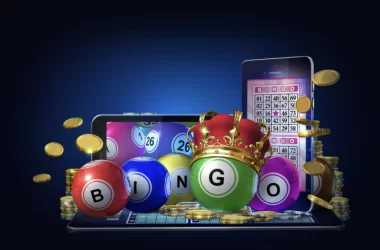You might think of bingo as just a fun game for community centers or retirement homes—but what if it’s secretly giving your brain a workout? Turns out, this classic numbers game does more than fill an afternoon. It sharpens memory, boosts focus, and even helps slow cognitive decline. Let’s break down why bingo is like a stealthy gym session for your mind.
How Bingo Challenges Your Brain
Bingo isn’t passive entertainment. To win, you’ve got to juggle multiple mental tasks at once:
- Auditory processing: Listening for called numbers amid background chatter.
- Visual scanning: Tracking multiple cards simultaneously (because who plays just one?).
- Quick recall: Remembering number patterns like “N-42” or “B-12” under time pressure.
- Decision-making: Deciding whether to mark a number or wait for confirmation.
This constant switching between tasks is called cognitive flexibility—a skill that tends to decline with age. Bingo keeps it nimble.
The Science Behind Bingo and Memory
Studies show that older adults who play bingo regularly outperform non-players in memory tests. One University of Southampton study found bingo players had better reaction times, working memory, and ability to ignore distractions. Here’s why:
1. Pattern Recognition Workout
Your brain loves patterns. Scanning for “four corners” or a “full house” activates the hippocampus—the memory center. It’s like doing squats for your neural pathways.
2. Dopamine’s Double Duty
Hitting a number releases dopamine, the “feel-good” chemical. But dopamine also enhances learning. That little rush when you mark a square? It’s reinforcing memory formation.
3. Social Glue = Brain Fuel
Bingo’s rarely solo. The chatter, laughter, and mild competition stimulate social cognition—proven to reduce dementia risk. Isolation shrinks brains; connection expands them.
Bingo vs. Other Brain Games
How does it stack up against Sudoku or crossword puzzles? Check this out:
| Activity | Memory Boost | Social Benefit | Stress Level |
| Bingo | High (multi-tasking) | High | Low (fun-focused) |
| Sudoku | Moderate (logic-heavy) | None | Medium (frustration risk) |
| Crosswords | Moderate (vocabulary) | None | Low-Medium |
Bingo wins for combining cognitive effort with low-pressure socializing—key for long-term brain health.
Adapting Bingo for Maximum Brain Gains
Want to level up? Try these tweaks:
- Speed rounds: Call numbers faster to force quicker processing.
- Themed games: Use cards with historical dates or foreign words to engage different memory types.
- Team play: Partner up to discuss strategies—adds verbal reasoning.
- Sensory mix: Play in a slightly noisy café to practice focus amid distraction.
Who Benefits Most?
While bingo helps most adults, it’s especially powerful for:
- Seniors: Slows age-related memory decline by 15-20% in regular players (per Journal of Alzheimer’s Disease reports).
- Post-stroke patients: Rehab centers use bingo to rebuild attention spans.
- ADHD adults: The structured chaos trains focus without feeling like “work.”
A Few Caveats…
Bingo isn’t a magic pill. For best results:
- Pair it with physical exercise (walking to bingo counts!).
- Avoid marathon sessions—20-40 minutes is the sweet spot.
- Skip high-stakes gambling versions. Stress cancels the benefits.
The Takeaway
Next time someone dismisses bingo as “just a game,” you’ll know better. It’s a cognitive Swiss Army knife—sharpening memory, speed, and social bonds all at once. And honestly, that’s a jackpot worth shouting about.







